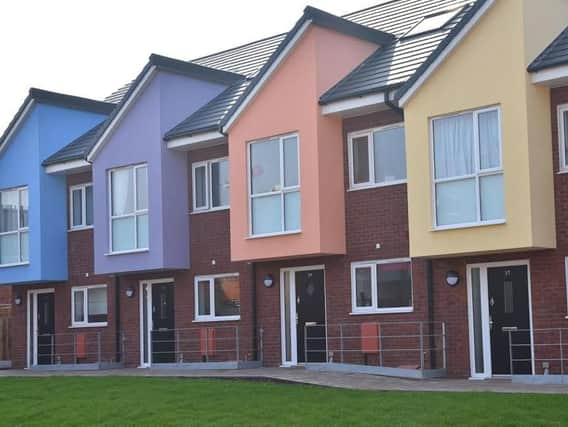New report blames Blackpool's health problems on poor housing


We have abundent fresh air, a milder climate than other parts of the UK and a huge beach to exercise our limbs on.
Yet still statistics show high rates of early deaths from serious illness such as cancer and lung disease.
Advertisement
Hide AdAdvertisement
Hide AdIt's a question Blackpool Council's director of public health Dr Arif Rajpura has wrestled with over his 10 years in the role.


His annual report into public health published this week concludes one of the main reasons is the resort's legacy of surplus holiday accommodation which has created a mass of cheap lodgings drawing vulnerable people into the town who are more likely to have health problems.
Figures from the report show around 8,000 people move to Blackpool from elsewhere in the UK each year and in a single year there were 5,667 new housing benefit claims - 86 per cent of which had a previous address outside Blackpool.
Around 8,000 people also leave the town each year - but the lack of jobs and opportunity means Blackpool is according the the report "a net importer of people with poorer health, unemployment and precarious labour and a net exporter of people with good health and skilled labour".
Advertisement
Hide AdAdvertisement
Hide AdFurther evidence supporting this statement comes from the coroners office.
Its records show of the deaths aged between 35 and 74 (the age group contributing to lower life expectancy) between 2012 and 2014, just a fifth were born in Blackpool
Dr Rajpura says: "New analysis by my team has explored wider factors that may be contributing to reduced life expectancy in the town and has focused attention on the issue of the abundent supply of poor quality, cheap housing and how this may be driving poor health in the town in a number of ways.
"The links between physical conditions of homes and residents' health are well accepted, and the evidence base can point us towards effective intervention.
Advertisement
Hide AdAdvertisement
Hide Ad"The relationship between housing supply, population flow and population health is more complex and there is concern this may be drawing people with poor health into the town."
He adds dealing with health inequalities has been one of his main challenges over the past decade, but changes are being made to address these issues.
These include initiatives such as the setting up of a communty farm at Grange Park. This will have a community shop, sponsored by the Fairness Commission, which will sell healthy produce.
Another key project is the development of the Whyndyke Garden Village, with 1,400 new homes to be built on land off Preston New Road.
Advertisement
Hide AdAdvertisement
Hide AdDr Rajpura says: "Backed by NHS England, this will be a demonstrator site promoting good practice nationally and internationally in putting health and wellbeing at the centre of new housing developments.
"It is evident to me that the health and wellbeing of Blackpool's residents is improving. However there remain considerable challenges we must address in order to build on and accelerate the progress made."
Trends:
Life expectancy in Blackpool has improved over the past 20 years but has not kept pace with England as a whole.
Men in Blackpool can expect to live for an average of 74.2 years, compared to 79.5 years for England.
Advertisement
Hide AdAdvertisement
Hide AdWomen can expect to live for 79.5 years, compared to 83.1 years in England.
However within the town, there are differences depending on where people live.
There is a 13-year gap between men living in one of the poorest wards Bloomfield (65.8 years) who can only just about expect to reach retirement age and those living in more affluant Stanley ward (78.8). The gap for women between the wards is seven years.
Housing:
Blackpool has more than 3,000 poor quality HMOs (houses in multiple occupation), which have mainly been converted from failed holiday accommodation.
Advertisement
Hide AdAdvertisement
Hide AdThese properties are concentrated in the inner neighbourhoods which are also the areas of lowest life expectancy. Around 23,000 people live in this type of accommodation.
What is being done?
The council is currently drafting a Housing Strategy for Blackpool which identifies four priorities to address the issues raises: -
New housing supply - ensuring this includes affordable housing and managing the conversion of former guesthouses for quality homes. The strategy highlights the need for government funding to reduce the density of HMOs and bring forward better quality new housing stock. Foxhall Village is an example of this.
Improving the private rented sector - 'My Blackpool Home' is a wholly owned council company set up to buy up failing HMOs and guesthouses and improve standards in this sector. Projects include the conversion of two derelict hotels in Albert Road to apartments.
Advertisement
Hide AdAdvertisement
Hide AdStablising lives - Funding for housing related support has dried up in recent years, but new funding opportunities are being secured to help ease homelessness, support vulnerable residents and address transience.
Creation of a housing board - this would tackle issues faced by communities and co-ordinate activities within the town.